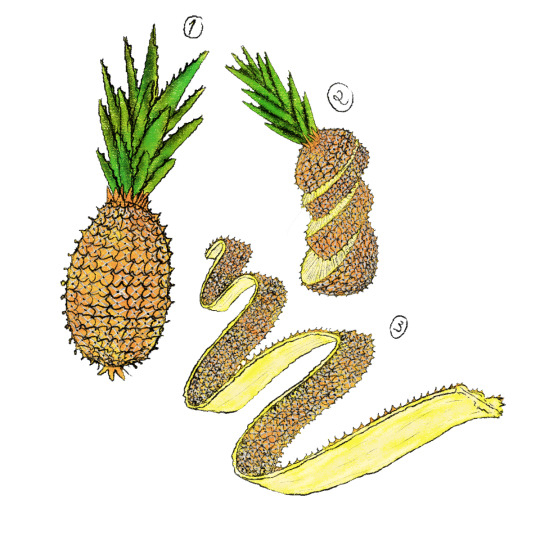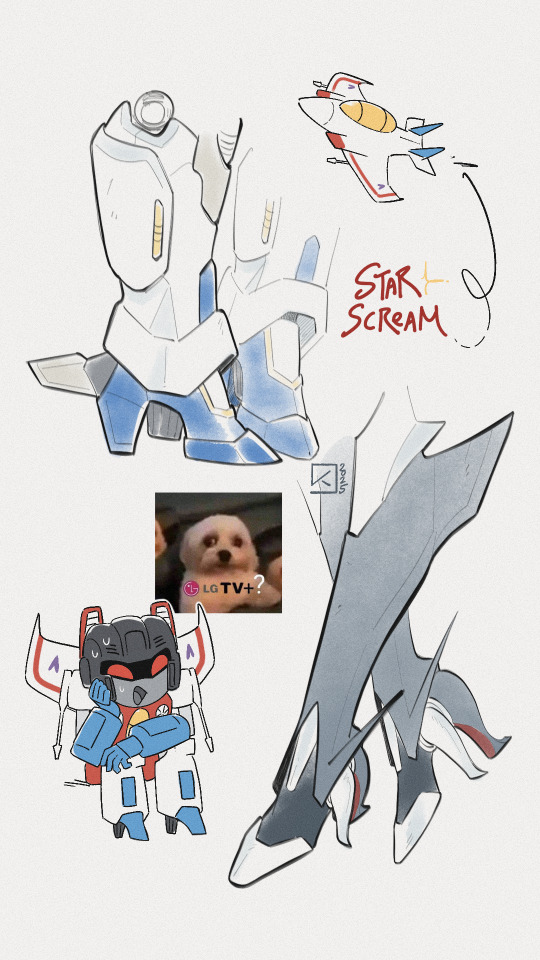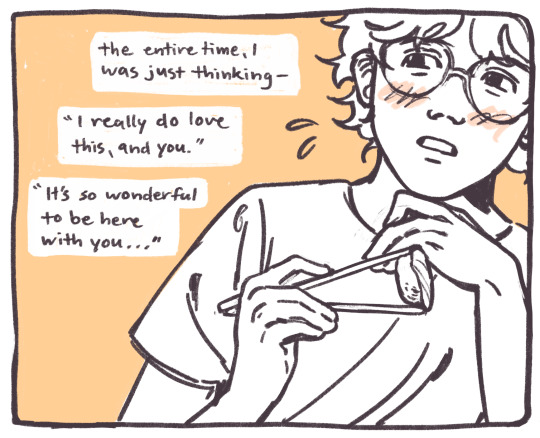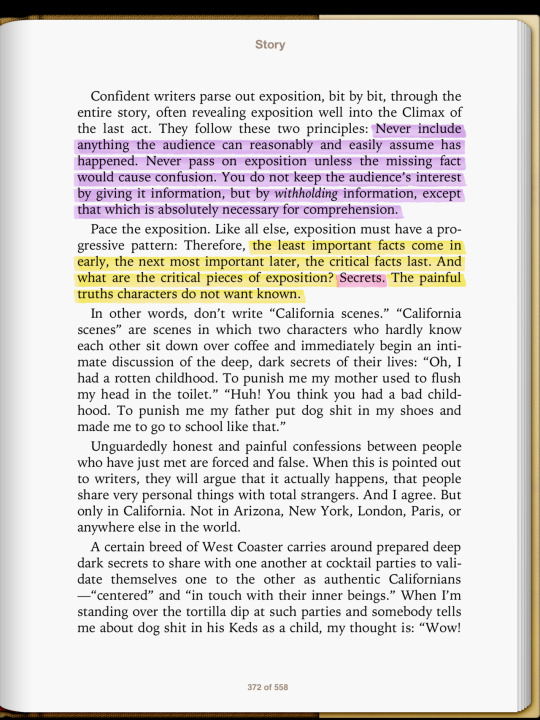Text
Lost in Translation: "Ruler of my Heart"
This one has been a long time coming. I initially made this only for close friends, but the response to my "Karma" translation analysis has been so kind, I wanted to share this one as well.
I'm a bilingual, bicultural, hobbyist KOR to EN translator, and I wanted to offer some insights into nuances that the official translation of "Ruler of my Heart" sacrificed in localizing to English.
1: You can turn away from the light
빛을 등져도 돼 넌 빛나는 the light, you can turn your back to it, [to] the shining[…]
Korean as a language takes fewer syllables than English to convey more meaning. As a result, whereas the English translation only has room for one sentence, the Korean here actually has one and a half. You can see above how the literal translation includes reference to "the shining [sun]" present in Line 2.
Focusing on the first sentence, however, the decision to translate the phrase "[해]도 돼" into "You can" is an interesting one. Technically speaking, it is an accurate translation, but to me, the English gives more of a permitting or conditional sense—either, "You're allowed to turn away," or "You may turn away from the light, but…"
The implication in the Korean, in turn, is more reassuring or coaxing: "It's okay—you can turn your back to the light," Luka sings. "Even then, you'll still eclipse the sun."
An interesting note is that "Ruler of my Heart" has different English translations between the MV and it's page on Fandom. Between the two, I believe the latter better conveys the nuance:
<You can turn your back to the light.>
(For visibility, I will color what I consider the most accurate translation in purple. Crucial mistranslations will be marked by an ❗emoji. These translations are, of course, biased by my interpretations and preferences, but I will try to be as objective + have had my opinions peer-reviewed by a friend who is also bilingual/bicultural and translates professionally.)
2: You even outburn the sun, my star
태양도 잠식시켜 MY STAR [the shining sun], you outshine/eclipse it, my star
The term "outburn" is a localization of the Korean word "잠식" (jamshik). This word, most commonly translated to 'encroach,' actually consists of the the hanja 蠶 'silkworm' and 食 'consume,' and is used to describe something getting 'eaten away' how a silkworm steadily eats away at a leaf.
In Korean, 食 was also historically sometimes eclipses. As such, like referenced above, <You eclipse the sun, my star> is a fair translation. However, personally, I wanted to retain that sense of 'eating away,' so the translation I'm offering is:
<You even swallow up the sun, my star>
3: You're the perfect subject with the whole world in your sad eyes
슬픈 눈빛 속에 세상을 다 가진 완벽한 피사체 sad gaze, within it, the whole world, possessing it, [you're] the perfect subject
This line is a perfectly suitable translation, but I wonder if the specificity of the Korean gets lost in the English. The word being translated to "subject" here specifically means the subject of a piece of visual art—of a photo, of a painting.
Additionally, although 눈빛 (nunbit) is frequently translated into 'eyes' in English, the Korean actually is a combination of the word nun, "eye," and bit, "light," and most accurately refers to the quality or tone of of one's gaze.
And then, of course, Korean loves to imply its subjects and objects rather than saying it outright, so technically, Luka never says that "you" are the perfect subject—he merely implies it. As such, a slightly more literal translation would be:
<The perfect subject with the whole world within your sad gaze>
4: ❗My savior, beautiful soul❗
MY SAVIOR, 가련한 영혼이여 My savior, [oh you] pitiful/[frail beauty of a] soul
The official translation, which says "beautiful soul," isn't quite accurate. The term used here is 가련하다 (garyeonhada) "pitiful," often used in the context of "that poor thing." It is sometimes used to refer to a someone who is beautiful in a meek or frail sort of way, but between the two words in the context of the song, I believe "pitiful" is the closer reading.
Additionally, the English is ambiguous as to whether the singer is addressing someone as a "beautiful/pitiful soul" or is describing their savior as a "beautiful/pitiful soul." The Korean is more explicit, with 이여 indicating that he is speaking to the "beautiful/pitiful" soul in question and addressing them as such.
As such, I believe a more accurate translation may be:
<My savior, oh pitiful soul>
5: I don't believe, you are a liar
I DON'T BELIEVE, YOU'RE A LIAR I don't believe [you], you're a liar
Not quite a translation, since this line is in English! However, in audio, I believe this line could seem ambiguous between "I don't believe you're a liar," and "I don't believe. You're a liar."
The official lyrics and the context clues indicate that it's the latter. However, this English doesn't read quite fluently. As such, for both clarity and rhythm, I recommend this be localized to:
<I don't believe you. You're a liar.>
6: When our darknesses overlap
나의 어둠과 너의 어둠이 겹쳐질때 my darkness and your darkness overlap, when [that happens]
I can see why the official translation has simplified this translation—the base, literal meaning doesn't change by simply saying that 'our darknesses' overlap rather than 'yours and mine.'
However, I personally do believe there is a poeticism that is lost in doing so. "You and I" is different than "We," and "your darkness and mine overlapping" is different from "our darknesses overlap." As such, I personally would recommend a slightly more literal translation:
<When my darkness and your darkness overlap>
7: ❗(Let me take it all away)❗
그대로 내게 맡겨 just like that, to me, entrust it
In my opinion, "Let me take it all away" is a major liberty and change in meaning. The Korean does not indicate any sort of burden being whisked away or disappeared or otherwise removed—rather, the Korean implies more a sense of responsibility (albeit coaxing and pressuring as the rest of the song).
The phrase used here can more accurately be translated to "Leave it to me," or "Let me take care of that," without clear indication of what 'it' or 'that' is. However, in the context of the song, I think the phrasing that most accurately conveys the domineering, ominously reassuring tone that saturates the lyrics would be:
<Just leave it all to me>
8: Ruler of my heart, ruler of my heart, ruler of my heart
No notes here, so instead I'll drop a fun fact! A different friend pointed out to me the other day that Sua's version of this song sounds like she interchanges between saying "Ruler of my Heart" and "Fooler of my Heart," and she asked me if this is the case.
I took a look at the waveforms in Pratt and listened more carefully and yes, Sua actually does say "fooler of my heart" multiple times! However, rather than an intentional easter egg, I believe this just comes from the nonfluency of the singer. English is hard! The smooth 'r' noise in English is also notoriously difficult for people who are used to only Korean phonetics.
9: You are forever beautiful
영원히 아름다워 forever beautiful
As mentioned before, in Korean, it is common to drop the subject of a sentence and rely on context clues. Sometimes, that leads to ambiguity. Here, the direct translation is "[something is] forever beautiful." That could be, as the official translation suggest, "you," but perhaps it could also mean "the world" or "our relationship" or "us."
Although it is grammatically more correct to choose a subject, and it would be an appropriate localization, I personally lean towards the camp that thinks that choosing one is also shutting out other potential readings. As such, I personally would recommend the most literal translation:
<Forever beautiful>
10: Repeat Line 8
11: Thе endless walls
끝이 없는 the wall end, [the one without one], the wall
And now we enter the section that's the most confusing in Korean as well… The English translation here is a fine localization. However, because the original lyrics use the singular form "wall" rather than "walls," I personally would choose to preserve that as:
<The wall without an end>
12: ❗A fall with no ground❗
낮이 없는 추락 day, [the one without one], fall
Unless the Korean phrase being used here is one neither me nor my professional translator friend knows, the official translation here seems to take a liberty with the meaning of the line. If so, I don't blame them, because I really didn't get what the Korean was saying here either!
However, after much discussion and contemplation, my friend and I have come to the conclusion that the implication here seems to be that the "fall" mentioned is one into a darkness so complete that there is no daybreak—a fall that no light can penetrate. We think that the lyric is supposed to convey a sense of hopelessness or an implication of futility.
In light of our confusion though, and the possibility of other poetic readings, I personally feel that a most literal translation is the safest:
<A fall without day>
13: In a single momеnt (breaking down)
한순간에 (무너트릴) in a single moment (to be broken down)
Here, the second singer comes in here to point out that "it" can all be broken down in an instant. However, typical of the Korean language, she doesn't make explicit what's being broken. Their delicate reality? Or the aforementioned wall? The impenetrable darkness?
Multiple readings are possible in the Korean. However, I believe the actual meaning of the sentence is better localized as:
<To break down in a single moment>
14: I go blind and deaf
눈이 멀어지고 들리지가 않아 eyes grow far, [I] cannot hear
The colloquial Korean words for "going blind" and "deaf" simply translate to "my eyes grow far" and "cannot hear," so "I go blind and deaf" is a completely fine translation. However, I personally felt that it loses a touch of poeticism inherent to the original Korean, so I would recommend:
<My vision blurs and I cannot hear>
15: My world collapsing
부서진 MY WORLD been destroyed, my world
The word that the official lyrics translates to "collapsing" is more accurately translated to "destroyed," "shattered," or "broken down," describing when an object breaks apart into several smaller pieces. As such, I think a fair translation is:
<My world, destroyed>
16: My savior, beautiful lady
MY SAVIOR, 가련한 여인이여 my savior, [oh you] pitiful/[frail beauty of a] lady
Here we again use 가련하다 (garyeonhada) from Line 4, but this time the singer calls the second party a 'lady' instead of a 'soul.'
<My savior, oh pitiful lady.>
17: Make me your god, I can give you everything
MAKE ME YOUR GOD, I CAN GIVE YOU EVERYTHING make me your god, I can give you everything
No notes here! The English is fine.
<Make me your god; I can give you everything>
Repeat lines 6-8.
Conclusion:
I didn't realize how much shorter this was going to be than Karma, so now I'm like, "Oh! It's already done?" Ahahaha. Regardless, I hope this provides some new and interesting insights—such a lovely song.
I intend to upload my usual Literal Translation, Readable Translation, Singable Translyrics later, so keep an eye out for it!
If you're interested in my other ALNST translations, they can be found here, and my asks are open if you have any further questions or requests.
(Under-post replies are, unfortunately, broken—I can see but not send, so if you have questions, send an ask!)
13 notes
·
View notes
Text




102K notes
·
View notes
Text
The night sky on Mars
60K notes
·
View notes
Text
Updates to "No Fandom" Additional Tags, July 2025

AO3 tag wranglers have canonized some new "No Fandom" additional tags and will be providing updates on a regular basis going forward. Check out the latest news post for details: https://otw-news.org/yc3mcsur
871 notes
·
View notes
Text
ordering a pup cup for my chikorita in lumiose

84K notes
·
View notes
Text
The Pale from Disco Elysium is one of the most terrifying cosmic horror concepts I've ever read honestly, I love it.
8K notes
·
View notes
Text
In ~these times~ it is important for queer people to be reminded of what "coming out" originally meant. "Coming out" did not mean telling all of your co-workers something super stigmatized and vulnerable about you, wearing your queer status on your sleeve in public, informing the police or government institutions about your sexuality, or even telling your parents. "Coming out" meant venturing out into the queer community; being among other queers as a queer yourself.
Coming out isn't about telling the entire world when doing so is not safe for you, it's not about arming your enemies with information they could use against you. No, coming out is about making a fulfilling queer life possible for yourself through participation in the queer community. It is about escaping the restrictions and dangers of the cisgender heterosexual world by rooting oneself more deeply into the queer one.
And you can always do that. No matter how oppressed we are. No matter how much the culture shifts and policies are enacted to terrorize us. We are always able to be ourselves when we are amongst each other. And living our queerness has always been a collective social project, not just a matter of personal exposure.
27K notes
·
View notes
Text
dr who’s on first, doctor strange is on second and doctor house is on third. theres no way theyre getting through a single inning
160K notes
·
View notes
Text

Work in progress by the talented, Aubrey Jangala Dixon
Aubrey Tjangala was born in 1974 at Yayi Yayi, a Pintupi outstation 30km west of Papunya. Yayi Yayi was a temporary settlement established by Pintupi people as they began their migration back into the Western Desert during the homelands movement of the 1970s.
After returning to his home Country,
Aubrey lived at his father's outstation,
Ininti, before settling in Kintore where he resides today.
18K notes
·
View notes
Text
i really do love those military jackets with embroidery that resembles a gilded ribcage they serve sooooooo much thanatological cunt it's unreal. the memento mori of it all. the bastardised martyrdom. the self-fulfilling prophecy of dressing yourself in silver and gold evoking the final, fragile shield between the most vital, vulnerable parts of you and annihilation, just to go to a place where the objective is to hack it to pieces as cruelly and efficiently as possible until you resemble nothing more than ground meat trodden into the dust you came from. fuck the military for real and forever but they went harder with horrifically ironic self-deceiving propaganda than anyone ever has or will. give it up for the old lie everyone!




24K notes
·
View notes
Text

The National Park Service is hilarious.
5K notes
·
View notes






